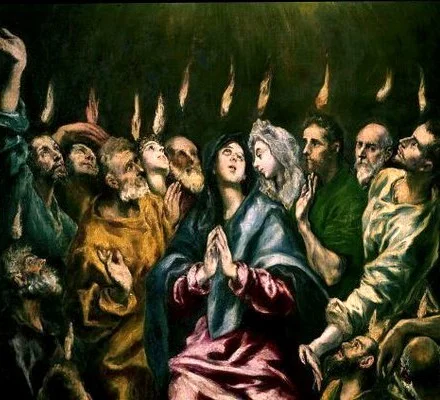Four myths about vocation, and three steps to find yours
Clare Gardom discusses four myths about Christian vocation. Also see our other essays on the subject of discerning Christian vocation.
Does everyone have a vocation? I believe so. Too often the Church’s discussion of vocation focuses on ordination and the religious life, to the exclusion of other possibilities. Several unhelpful myths about vocation have developed as a result of this emphasis. In fact, these myths distort the way we think about vocations to ordained ministry as much as any others.
Myth #1 My vocation will be a single, identifiable named thing which I choose once
If you know anyone who has discerned a priestly vocation, you may have seen what looked like a binary question—priest or not—and a process leading to the peak moments of ordination, first as deacon and then priest. Job done; decision taken. Stick around a few years, until your friend finishes their curacy, and you will see them facing a more complex and open-ended moment for discernment, with options just as innumerable and incommensurable as anyone else’s. Like those of us who have not gone down the route of ordained ministry, they’ll probably do one job for a few years, then several more, while the thread of calling which led them to choose particular options over others may be identifiable only in retrospect.
Myth #2 The best way to identify my vocation is to sit by myself and think very hard about it
This is probably the worst way to find your vocation. You will probably end up with a vivid, elaborate picture of yourself, with a great gulf between it and the real you. The more you focus on this idealised image, the less attracted you will be to any real preliminary steps you might take towards it.
Myth #3 My vocation should feel like a sacrifice OR My vocation should feel fulfilling at all times
The fact that both of these sound plausible shows neither can be the whole story. Feelings can be a bit like a bunch of whiny children. They make dramatic and often inconsistent demands, to which we need to make a considered response.
Myth #4 The best way to grow in holiness is to get ordained
I’ll discuss later on why lay people are sometimes better placed than priests to fulfil the requirements of a Christian vocation. We need the clergy for the sacraments and leadership of the Church, but they are not the Church: we all are. Pope Francis has described clericalism as a ‘conspiracy’ between the clergy and the laity: “the priest clericalizes the lay person and the lay person asks to be clericalized, because deep down it is easier”. By consigning the clergy to a “higher tier” of holiness, we make unrealistic demands of them and forestall our own growth towards a mature faith.
El Greco. Pentecost.
The model of priestly vocation gives the impression that discernment is a complex process with a simple outcome. But this gets things the wrong way around. All Christians have the same vocation:
To love God with all your heart, and soul, and strength and mind, and
To love your neighbour as yourself (Luke 10.27).
To go and make disciples of all nations, baptising them in the name of the Father, and of the Son, and of the Holy Spirit (Matthew 28.19).
Loving God and your neighbour were familiar Jewish commandments, which Jesus quotes back to the so-called expert in the law who tried to test him. If our society weren’t so chary of God, it would be uncontroversial to say that these are instructions for all people, Christian or otherwise.
The third instruction merits a little discussion. Jesus gave it to his disciples just before he left them. Are we disciples? One of the Bishop of Oxford’s areas for focus in Oxford diocese is: “To put the discipleship of all at the heart of our common life.” This suggests that we can and should become disciples, if we aren’t already. Once we are disciples, we are called to make more. Yes, it is scary. And yes, it would be nice to leave it all to the clergy. Catholic Christians are often happier being quiet and listening to others talk about faith than expressing their own. We could practice by talking to other members of our congregation, by facilitating a bible study or discussion group, preparing intercessions, or leading Children’s Church.
Once you’ve built up a bit of confidence, be open to chances to share God’s love more widely. Lay people often have opportunities for evangelism which priests do not: we may come into contact with many more non-Christians; if we invite a friend to church we can sit with them and do our best to make them welcome; people tentatively exploring faith might feel more comfortable raising questions with someone they don’t see as an authority figure.
The detail of following these commandments will depend on the detail of each person’s life, but that doesn’t mean we can’t discuss them. Reflecting on how you have been following your Christian calling would be an excellent thing to do with a spiritual director, confessor, home group, or friend. Did you hope that having a vocation would give you a glamorous professional title to put on your CV? Telling a friend that you didn’t snap at your mum this week might not seem like much in comparison. But no amount of grand planning can outweigh one real, small act of kindness. If you spot one—yours or someone else’s—give thanks for God’s grace at work, leavening the lump of self-interest and self-doubt.
If you are a Christian, this is your threefold calling. Answer in the ways you can, not the ways you can’t. You’ll be brought up against your weaknesses soon enough.
Do you want a special label to remind you you’re special? Me too. It’s “Christian”’—even if some people you dislike and disagree with also use it.
Do you want a formula to help you make decisions about what you should do? See above—even if you’d prefer something with clearer answers.
It is a simple process, but one with as many outcomes as there are Christians. Whenever you are following one of the three steps, you are living your calling.






